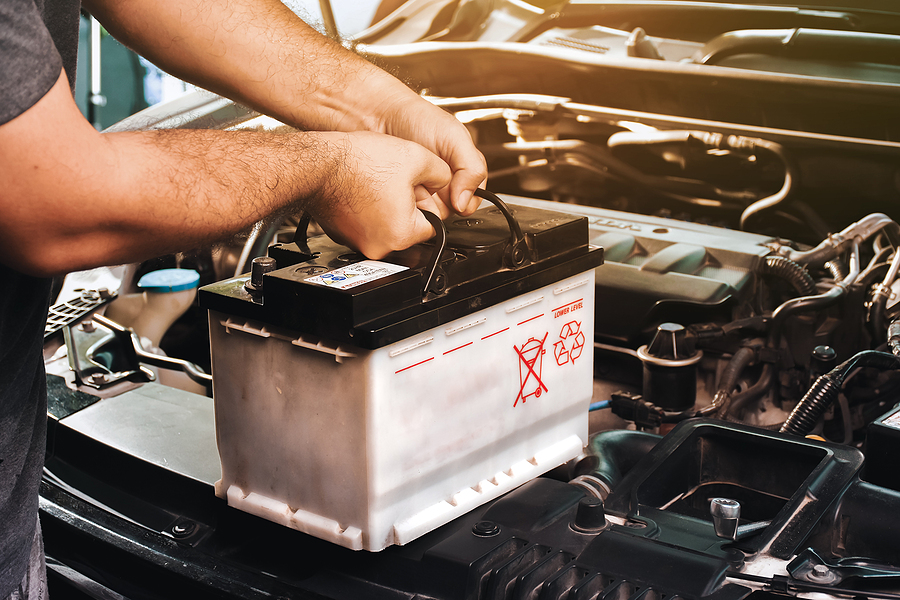When it comes to car battery replacement, there are a few things that you need to take into account. The most important factor is the type of battery that your car uses. There are two main types of batteries- lead acid and lithium ion. Each type has its own advantages and disadvantages, so it’s important to choose the right one for your needs.
Continue below to learn more facts about each car battery option, plus where you can recycle your old one for cash on the spot!

Top 2 Car Battery Options
As mentioned, there are two primary kinds of car batteries – lead-acid and lithium-ion. Lead-acid batteries are the most common type of battery used in cars, trucks and SUVs. They’re also the least expensive to manufacture. Lithium-ion batteries are more expensive to produce, but they offer a number of advantages over lead-acid batteries.
Lithium-ion batteries are lighter weight and can hold a charge for longer than lead-acid batteries. They also discharge slower, meaning that they can provide power for longer periods of time. Lithium-ion batteries are also more resistant to cold weather, so they’re a good choice for cars that are driven in colder climates.
If you’re not sure which type of battery is right for your car, consult with your mechanic or the dealership where you purchased your vehicle. They can help you choose the best option for your car and driving habits.
Proper Car Battery Maintenance
Once you’ve selected the right car battery for your needs, it’s important to keep it properly maintained. Here are a few tips for keeping your battery in top condition:
Check the battery regularly for corrosion. If you see any white or blue powder around the terminals, clean it off with a wire brush or a solution of baking soda and water.
Make sure the battery terminals are tight. Loose terminals can cause the battery to lose power and eventually fail.
Avoid exposure to extreme temperatures. Hot weather can cause the battery to overheat, while cold weather can drain the power from the battery faster.
Keep the battery clean. Dust and dirt can build up on the battery terminals and prevent the electrical current from flowing properly. Clean the terminals with a wire brush or a solution of baking soda and water.
Don’t overcharge the battery. When charging a lead-acid battery, stop when the charger indicates that the battery is full. Overcharging can damage the battery and shorten its lifespan.
Proper car battery care will help it last longer and keep your car running smoothly. For more information on car batteries and maintenance, consult with your mechanic or the dealership where you purchased your vehicle.
Car Battery Recycling
Did you know that car batteries can be recycled? It’s true! In fact, recycling car batteries is a great way to help the environment. When a car battery dies, it is sent to our Indianapolis metal recycling facility. There, the lead and acid are separated, and the lead is melted down. The molten lead is then poured into molds to create new car batteries. The acid is also recycled. It is mixed with water and used to clean metal parts at the recycling facility. Recycling car batteries helps reduce pollution and saves energy. So next time your car battery dies, take it to a recycling center instead of throwing it in the trash!
Would you like to recycle your old car battery or junk auto parts and get paid cash for them all? Contact Zore’s Recycling at 317-244-0700 for fast and profitable auto part recycling in Indianapolis, Indiana. We pay cash on the spot for all junked car parts, regardless of age or condition!
Related Posts:
Which Car Parts are the Best for Metal Recycling?
Outsource Auto Dismantling Before Selling a Junk Car
Metal Recycling Facts for Various Types of Batteries
